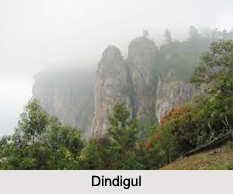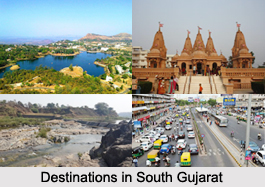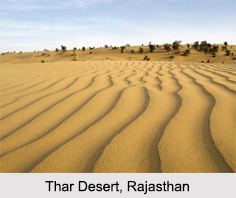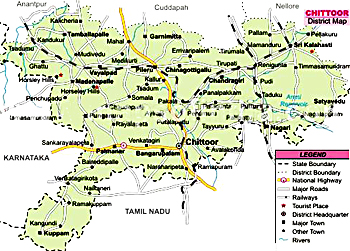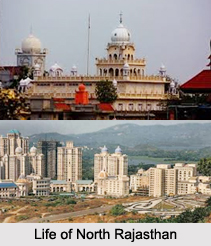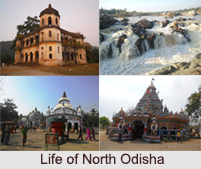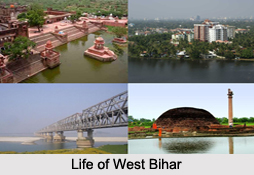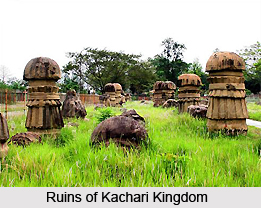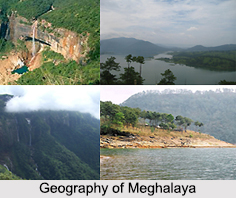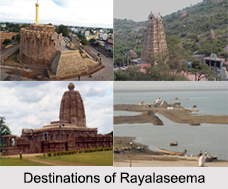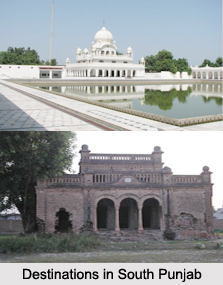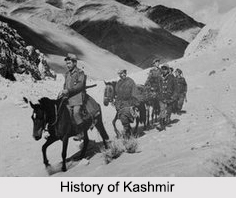 History of Kashmir is recorded since 3450 BCE through "Rajatarangini", written by Kalhana. Kashmir has more than 5400 years of history, lineage of Kashmir Kings and pre-Mahabharata era Kashmir valley formation by Sage Kashyapa. Kashmir is the arguably most beautiful place in the world. Kashmir is the only region of India to have a historical record of its distant past. History of Kashmir is classified into three major categories; the mythological history, then ancient history, medieval history and modern history.
History of Kashmir is recorded since 3450 BCE through "Rajatarangini", written by Kalhana. Kashmir has more than 5400 years of history, lineage of Kashmir Kings and pre-Mahabharata era Kashmir valley formation by Sage Kashyapa. Kashmir is the arguably most beautiful place in the world. Kashmir is the only region of India to have a historical record of its distant past. History of Kashmir is classified into three major categories; the mythological history, then ancient history, medieval history and modern history.
Etymology of Kashmir
Kashmir, if literally translated, means land desiccated from water; where "ka" means the water and "shimeera" means to desiccate. Tradition says that Kashmir was originally a lake that was drained by the great saint Kashyapa of ancient India. It was included in the empire of Ashoka Maurya who is credited with the foundation of the city of Srinagar around the year 250 BC.
Origin of Kashmir
In "Rajatarangini" it is stated that the valley of Kashmir was formerly a natural lake which was drained by the sage, Kashyapa, son of Marichi by cutting the gap in the hills at Baramulla, which was known as "Varaha-Mula". When Kashmir had been drained, Kashyapa asked Brahmins to settle there. According to Mahabharata, the Khamboja Dynasty ruled the entire part of Kashmir and Kashmir Valley. Panchala Dynasty began to rule the entire part of Kashmir after the decline of Khamboja Dynasty.
Early History of Kashmir
Early History of Kashmir began with the Neolithic development at about 3000 years ago. Then the regal rule of Kashmir began during Vedic age. It is said that the ancient tribe "Uttara Kuru" were the permanent residents of Kashmir Valley. Later, Kashmir became a part of Ashoka"s Empire. Ashoka is said to have founded the city of Shrinagari, which now lies in ruins along the outskirts of the modern-day Srinagar. After the commencement of the Christian era, Kashmir was invaded by Tartars and Buddhism became the state religion. Kashmir remained one of the major strongholds of Buddhism for a long time. A number of Buddhist monks visited Kashmir to teach and propagate the religion. Even the great Adi Shankara is said to have visited the state sometime in the 8th century.
Hieun Tsang visited Kashmir during 629- 631. Lalitaditya was the most famous of the later Hindu Kings who subdued many kings in India. After him, dynastic revolutions followed and ultimately the valley passed into the hands of the Muslim Rulers.
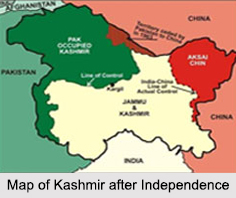 Medieval History of Kashmir
Medieval History of Kashmir
The Muslims continued to reign supreme over Kashmir for well over 5 centuries, after the Islamic invasion to Delhi in 1192 AD. The first Muslim ruler to have reigned over Kashmir was Shah Mir. He started the Salatin-i-Kashmir or Swati dynasty. Sultan Zain-ul-Abidin was a famous Muslim ruler who is said to have introduced paper craft, sericulture and shawl manufacture in Kashmir. Muslim rule in Kashmir even encompassed the rule of the Mughal dynasty and the Afghan Durrani Empire. Akbar, the Great Mughal emperor, conquered Kashmir in 1586 and established the rule of law and order. Jahangir and Shah Jahan founded many gardens here, which are now the tourism attractions. After 1748, Kashmir passed into the hands of Afghans who ruled cruelly till the British Empire in India established its rule.
Modern History of Kashmir
At a first stage of modern history, Kashmir was ruled by Sikh Emperor Ranjit Singh. Kashmir remained under their control till 1846. After the fall of the Sikh Power due to war with the British East India Company, Kashmir passed into the hands of Gulab Singh, the Dogra Raja of Jammu and lieutenant of Ranjit Singh on payment of Rs.75 Lakhs to the British (Amritsar Treaty, March 16, 1846). Maharaja Gulab Singh died in 1857 and was succeeded by his son, Maharaja Ranbir Singh, who was in turn succeeded in 1885 by his son Pratap Singh. Maharaja Hari Singh succeeded his uncle Pratap Singh in 1925. The region remained under the tutelage of the British during this time.
History of Kashmir after Indian Independence
The Indian subcontinent was divided into India and Pakistan in August 1947, due to the Partition of India. Kashmir was free under the Indian Independence Act to join either of the new dominion or to remain independent. Kashmir had not yet made its choice during the impact of the tribal invasion of Kashmir by Pakistan in October. In 1947, the administration of Hari Singh was broke up and people suffered, heavily. Sheikh Mohamad Abdulla, the leader of Jammu and Kashmir National Conference mobilised the people in a heroic resistance to the invasion and fought for Pakistan. And also under this grave peril, the State, having no alternative, Hari Singh applied to the Government of India which sent unparallel quick assistance to halt the wanton invasion of the state of Pakistan. Yuvraj Karan Singh, son of Maharaja Hari Singh, the last ruler, was the first head (Sadar-i-Riyasat) of the state under a new dispensation. A UN cease-fire in 1949 saw the end of fighting and created the first Line-of-Control. Following this initial skirmish, Kashmir has constantly been plagued by wars and conflicts due to border disputes and territorial issues.
In 1956 Kashmir was, in effect, integrated into the Indian Union under a new Constitution. However, Azad Kashmir, the area which Pakistan gained during its campaign in 1948, continues to remain with Pakistan. India and Pakistan fought over Kashmir again in 1965. In 1966, Prime Minister Lal Bahadur Shastri of India and President Ayub Khan of Pakistan signed the Tashkent Agreement. They tried to resolve the dispute by peaceful means. After the war, the province of East Pakistan emerged as an independent country called "Bangladesh". The Shimla Agreement was signed between the Indian Prime Minister Indira Gandhi and the Pakistani President Z.A. Bhutto where both the countries agreed to sort out all issues bilaterally.
Since then, a bitter enmity has been developed between India and Pakistan and three wars have taken place between them over Kashmir. The growing dispute over Kashmir and the consistent failure of democracy also led to the rise of Kashmir nationalism and militancy in the state. On Aug 5th 2019, Jammu and Kashmir was converted to Union Territory.







